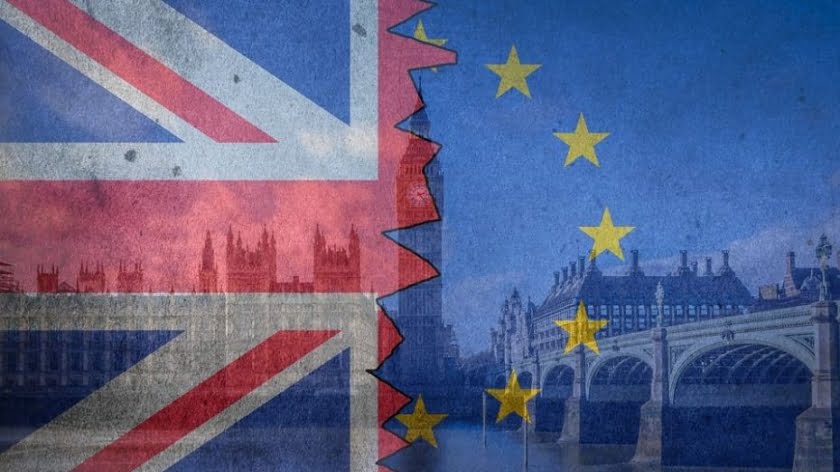Trump’s Afghan Drawdown Plans. India’s Balancing Act
Secretary of State Pompeo’s surprise announcement that President Trump ordered him to reduce the US military presence in Afghanistan before the 2020 elections immediately raised the ire of the Mainstream Media and will probably see his domestic foes’ hostile narratives to these plans being tacitly supported by India, the only country that stands to lose if this scenario materializes and which might even rationalize its infowar operation on the basis of it being an asymmetrical response to Trump’s recent but highly controversial revelation that Modi allegedly asked him to mediate in Kashmir.
***
Secretary of State Pompeo dropped a bombshell on Monday when he confirmed that President Trump ordered him to reduce the US military presence in Afghanistan before the 2020 elections. This surprise announcement immediately raised the ire of the Mainstream Media, with even supposedly “neutral” outlets such as Reuters embedding hostile narratives in their pieces about this decision. The latter inserted its editorial opinion into what unassuming readers thought was just a purely journalist article reporting the facts when it wrote that
“The disclosure of a timeline will add to speculation that Trump is prepared to strike any deal with the Taliban that will allow for at least partial U.S. withdrawal before American voters go to the polls, irrespective of the concerns of the U.S.-backed government in Kabul” and that “Disclosing Trump’s goal of withdrawing forces could weaken the U.S. negotiating position if the Taliban believe Trump wants to get out, no matter what.”
Going even further, Reuters cited unnamed diplomatic sources whose statements conformed to the outlet’s suspicious editorial stance towards this announcement, including the not-so-subtle innuendo that Trump is apparently selling out to the Taliban in order to boost his re-election prospects among the tens of millions of Americans who are fed up with this costly conflict. They wrote that “While U.S. diplomats say the peace process must be ‘Afghan owned and led’, senior Afghan officials and Western diplomats said the timetable being imposed by the White House to get U.S. troops out risked overshadowing the wider aim of peace among Afghans…Some U.S. allies fear that once a timetable for a U.S. pullout is announced, the Afghan government will have little leverage over the militants in their talks about how to run the country…’The bargaining power to protect democracy and basic freedom will be surrendered once the pullout is announced,’ the second diplomat said.”
This interpretation of events isn’t anything new, though, since it coincidentally reflects the Indian position, the only country that stands to lose if the scenario of a large-scale American military drawdown in Afghanistan materializes because it fears that its so-called “strategic depth” there vis-a-vis Pakistan would disappear with the withdrawal of American forces. The author elaborated on this perspective in his February analysis titled “Reading Between The Lines: India Has Sour Grapes Over America’s Afghan Peace Talks“, which proved that India had already begun low-level infowar operations against its newfound military-strategic ally. These efforts are only expected to intensify in the coming future, especially since India will probably rationalize its perception management operation on the basis of it being an asymmetrical response to Trump’s recent but highly controversial revelation that Modi allegedly asked him to mediate in Kashmir.
India’s “balancing” act of so-called “multi-alignment” has failed to reap any tangible dividends for it, especially as regards its grand strategic goal of being treated as an “equal” ally by the US, so its diplomats might start to turn against America despite its military leaders remaining on the same page with it regarding the shared objective of “containing” China. In that case, India would be emulating the US’ own “good cop, bad cop” approach, albeit without the leverage to actually gain anything from it other than a short-lived ego boost among the BJP’s hyper-nationalist base at home. If India joins forces with Trump’s domestic foes and attempts to more actively discredit him and his administration for their new peacemaking policy in Afghanistan, then the President would obviously interpret that as a political threat to his re-election prospects. Accordingly, he might even double down on the US’ campaign of diplomatic (Kashmir), economic (trade deal), and military (S-400 sanctions) pressure on India in response.
The end result of any Indian move in this direction could predictably be that the US’ “Indo-Pacific” strategy stalls despite both countries having a joint strategic vision of “containing” China, all because New Delhi couldn’t cut its losses in Afghanistan and throw its support behind Washington’s latest moves there. Interestingly enough, while the two might still cooperate real closely in the military sphere, they might also become trapped in a low intensity Hybrid War cycle with one another on the diplomatic, economic, and informational fronts because of the rampant distrust that’s developing between their respective “deep states” (military, intelligence, and diplomatic bureaucracies) as a result of India’s refusal to back the US’ new approach towards Afghanistan and Trump’s controversial comments on Kashmir. Barring a complete strategic surrender by India (which certainly can’t be discounted), the prognosis doesn’t look too positive for bilateral relations with the US after Pompeo’s latest policy announcement and the likely reaction that it’ll provoke from New Delhi.
By Andrew Korybko
Source: Global Research








Are you kidding me with that first sentence? Did you fail English Grammar 101? Take a breath bro. I usually like Andrew’s articles so this is a surprise.